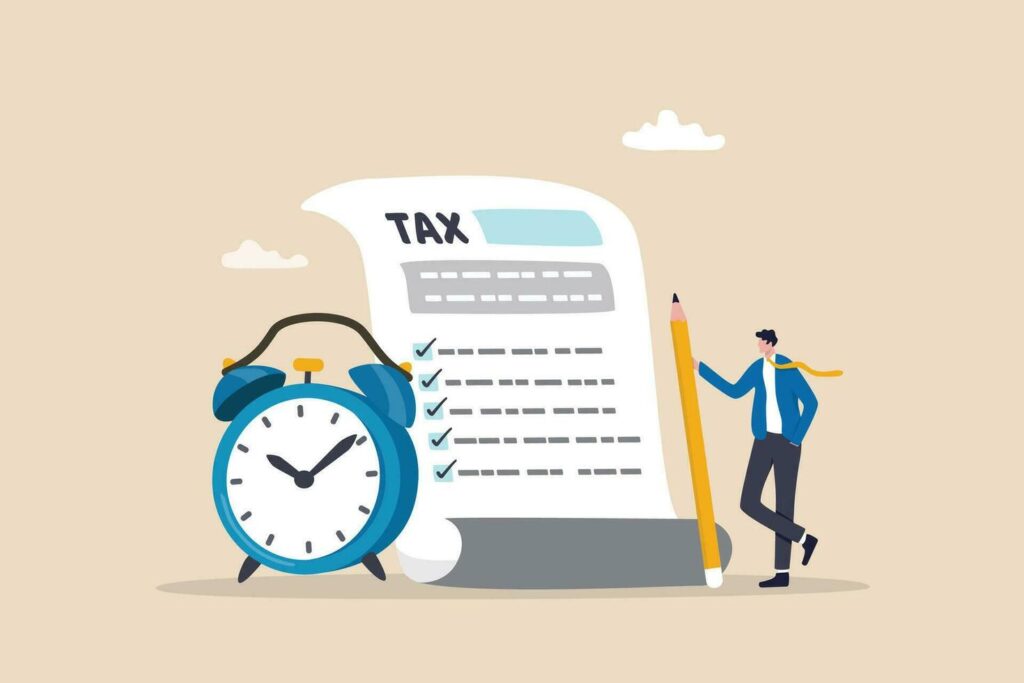Tax planning is a crucial aspect of managing your finances that goes beyond mere compliance with tax laws. It involves strategically organizing your financial affairs to optimize tax benefits and enhance your overall wealth. Understanding the basics of tax planning is essential for individuals and businesses alike as it can lead to significant savings and long-term financial success.
Understanding the Basics of Tax Planning
The Importance of Tax Planning
Tax planning is not just about avoiding penalties and fulfilling legal obligations. It is about minimizing tax liabilities and maximizing after-tax income. By properly planning your taxes, you can reduce the amount you owe to the government and keep more of your hard-earned money in your pocket. It provides opportunities to optimize your financial situation and ensure you are making the most of available tax incentives and deductions.
Effective tax planning requires a deep understanding of the intricacies of the tax system. It involves staying up-to-date with the latest tax laws and regulations, as they are subject to change. By keeping yourself informed, you can take advantage of any new tax breaks or incentives that may be available to you.
Key Concepts in Tax Planning
Several key concepts form the foundation of tax planning. These include understanding the current tax laws and regulations, being aware of available tax deductions and credits, and having a comprehensive knowledge of your financial situation. By closely examining your income, expenses, and investments, you can identify potential tax-saving strategies and implement them effectively.

One important aspect of tax planning is understanding the different types of deductions and credits that you may be eligible for. Deductions reduce your taxable income, while credits directly reduce the amount of tax you owe. By taking advantage of these deductions and credits, you can significantly lower your tax liability.
Another crucial concept in tax planning is timing. The timing of your income and expenses can have a significant impact on your tax liability. By strategically timing certain transactions, such as deferring income or accelerating expenses, you can potentially lower your taxable income in a given year.
Furthermore, tax planning involves careful consideration of your investment portfolio. Different types of investments have varying tax implications. By strategically allocating your investments, you can minimize the tax burden on your investment income.
Additionally, tax planning encompasses estate planning. It involves structuring your estate in a way that minimizes estate taxes and ensures a smooth transfer of assets to your heirs. By utilizing various estate planning tools, such as trusts and gifting strategies, you can protect your wealth and minimize the tax impact on your estate.
In conclusion, tax planning is a crucial aspect of financial management. By understanding the basics of tax planning and implementing effective strategies, you can optimize your financial situation and minimize your tax liabilities. It is important to stay informed about the ever-changing tax laws and regulations to take advantage of any new opportunities for tax savings.
The Role of Compliance in Tax Planning
Compliance vs Optimization in Tax Planning
While tax compliance is essential to avoid legal consequences, it should not be the sole purpose of your tax planning efforts. Compliance involves following IRS rules and regulations and ensuring accurate reporting of your income and expenses. On the other hand, tax optimization aims to maximize your financial benefits within the framework of compliance. It focuses on proactive strategies to minimize taxes legally and efficiently.
The Risks of Non-Compliance
Failure to comply with tax laws can lead to penalties, fines, and even legal actions. Non-compliance not only puts your financial stability at risk but also damages your reputation as a responsible citizen or business owner. Engaging in expert tax planning helps you navigate the complex tax landscape, stay compliant, and minimize the chances of costly errors or oversights.
When it comes to tax planning, compliance plays a crucial role in ensuring that you are on the right side of the law. By adhering to the rules and regulations set forth by the IRS, you can avoid any legal consequences that may arise from non-compliance. However, compliance should not be the only focus of your tax planning efforts.
Tax optimization, on the other hand, goes beyond mere compliance. It aims to maximize your financial benefits within the boundaries of the law. By proactively strategizing and implementing legal methods to minimize your taxes, you can optimize your financial situation and achieve the best possible outcome.
One of the key advantages of tax optimization is that it allows you to take advantage of various tax incentives and deductions that are available to you. By carefully analyzing your income and expenses, you can identify opportunities to reduce your tax liability and increase your overall financial well-being.
However, it is important to note that tax optimization should always be done within the framework of compliance. Engaging in aggressive tax planning strategies that push the boundaries of legality can lead to severe consequences, including penalties, fines, and legal actions. Therefore, it is crucial to seek expert advice and guidance to ensure that your tax optimization efforts are both effective and compliant.
Non-compliance with tax laws can have serious repercussions. Apart from the financial risks associated with penalties and fines, non-compliance can also damage your reputation as a responsible citizen or business owner. It can erode the trust that others have in you and your ability to fulfill your obligations.
By engaging in expert tax planning, you can navigate the complex tax landscape with confidence. Expert tax planners have a deep understanding of the ever-changing tax laws and regulations, allowing them to provide you with the guidance and strategies needed to stay compliant. They can help you identify potential risks and opportunities, ensuring that you make informed decisions that align with both your financial goals and legal obligations.
In conclusion, compliance is a critical aspect of tax planning. It ensures that you stay on the right side of the law and avoid any legal consequences that may arise from non-compliance. However, compliance should not be the sole focus of your tax planning efforts. By incorporating tax optimization strategies, you can maximize your financial benefits while staying within the boundaries of the law. Remember to seek expert advice to ensure that your tax planning efforts are both effective and compliant.

How Expert Tax Planning Goes Beyond Compliance
The Value of Expertise in Tax Planning
Utilizing the services of a qualified tax planner can make a significant difference in achieving your financial goals. Expert tax planners have in-depth knowledge of tax laws, regulations, and strategies to help you optimize your tax situation. Their expertise allows them to identify opportunities and recommend tailored strategies that may not be apparent to individuals without their specialized knowledge.
When it comes to tax planning, it’s not just about complying with the law. Expert tax planners go beyond compliance to ensure that you are taking full advantage of all available opportunities to minimize your tax burden and maximize your financial gains. They understand that tax planning is a dynamic process that requires ongoing evaluation and adjustment to adapt to changing tax laws and your evolving financial situation.
Strategies for Effective Tax Planning
An expert tax planner can provide personalized strategies to minimize your tax burden. They may suggest income deferral techniques, tax-efficient investment strategies, or ways to maximize deductions and credits. By customizing your tax plan to your specific financial situation and goals, you can optimize your tax position and enhance your overall wealth.
One strategy that expert tax planners often recommend is income deferral. By deferring income to future years, you can potentially reduce your current tax liability and have more funds available for investment or other financial goals. This strategy is particularly beneficial for individuals who expect their income to decrease in the future or those who want to take advantage of lower tax rates in subsequent years.
In addition to income deferral, expert tax planners may also suggest tax-efficient investment strategies. They can help you identify investment opportunities that offer tax advantages, such as tax-free municipal bonds or tax-deferred retirement accounts. By strategically allocating your investments, you can minimize the tax impact and potentially increase your after-tax returns.
Maximizing deductions and credits is another key aspect of effective tax planning. Expert tax planners have a deep understanding of the tax code and can identify deductions and credits that you may not be aware of. They can help you take advantage of deductions for expenses related to education, homeownership, or business expenses. Additionally, they can guide you through the complex rules surrounding tax credits, such as the child tax credit or the earned income tax credit, to ensure you receive the maximum benefit.
Ultimately, expert tax planning goes beyond compliance by providing you with a comprehensive strategy to optimize your tax position and enhance your overall financial well-being. By working with a qualified tax planner, you can benefit from their expertise and knowledge to make informed decisions that align with your financial goals.

Wealth Enhancement through Expert Tax Planning
The Impact of Tax Planning on Wealth Accumulation
Effective tax planning can significantly contribute to wealth accumulation. By strategically minimizing tax liabilities, you can allocate more funds towards savings, investments, and other wealth-building activities. Over time, the accumulated savings can grow substantially, leading to improved financial stability and increased wealth creation opportunities.
Long-Term Benefits of Expert Tax Planning
Expert tax planning not only provides short-term tax savings but also delivers long-term benefits. By implementing proactive tax strategies, you can optimize your financial situation and lay the groundwork for sustained wealth growth. Regular reviews and adjustments to your tax plan can ensure you continue to make the most of current tax laws and confidently navigate any changes in the future.
Choosing the Right Tax Planner for Your Needs
Qualities of an Effective Tax Planner
When selecting a tax planner, it is essential to consider their qualifications and experience. Look for professionals who have relevant certifications, extensive knowledge of tax laws, and a track record of successful tax planning. Effective tax planners have excellent analytical skills, attention to detail, and the ability to understand complex financial situations.
Questions to Ask When Hiring a Tax Planner
Before hiring a tax planner, it is crucial to ask relevant questions to ensure they are the right fit for your needs. Inquire about their experience with similar clients, the approach they take to tax planning, and the fees involved. Additionally, discuss the frequency of communication and the level of ongoing support they provide to monitor and adjust your tax plan as needed.
In conclusion, expert tax planning goes well beyond compliance with tax laws. It involves understanding the basics of tax planning, recognizing the role of compliance, and leveraging tax optimization strategies. By working with an experienced tax planner, you can enhance your wealth through effective tax planning, enjoy the immediate and long-term benefits, and ultimately achieve your financial goals.
Other resaources: Debt Recycling for Prosperity and Turning Liabilities into Assets